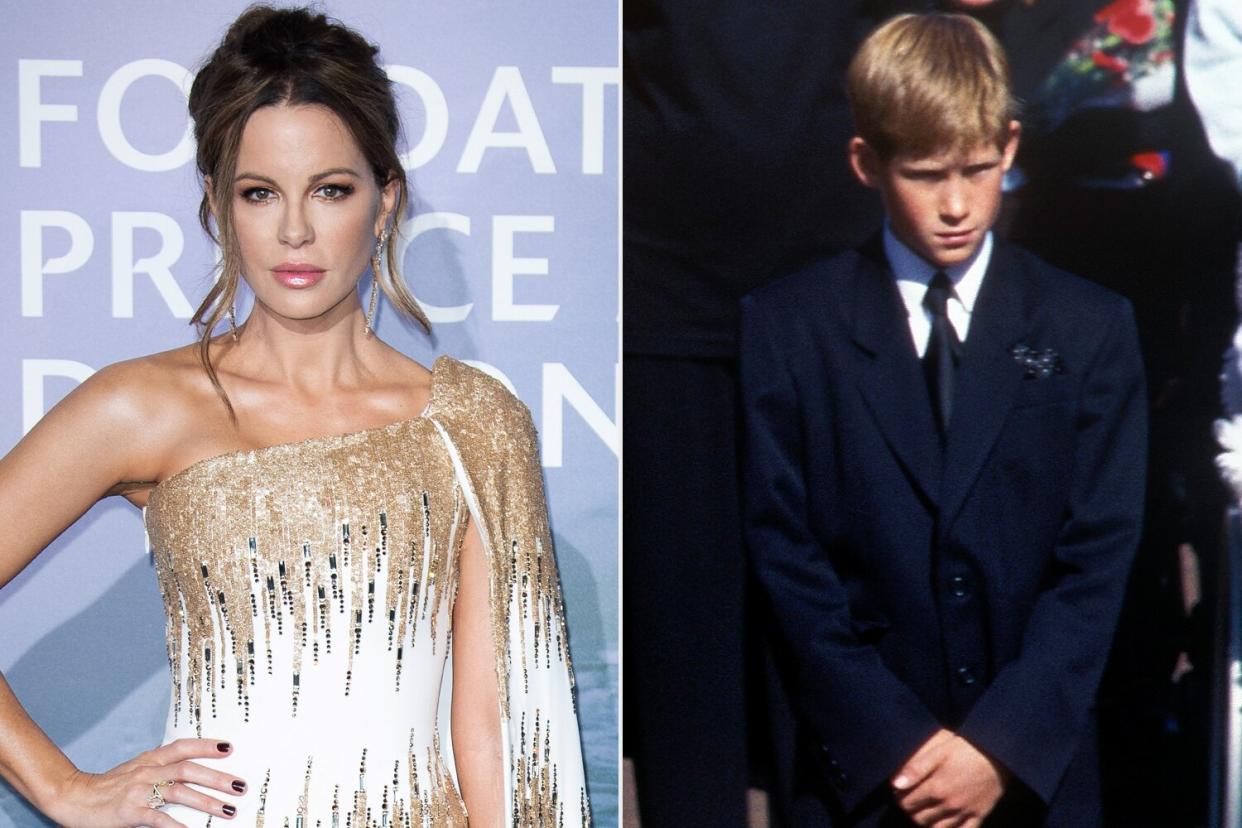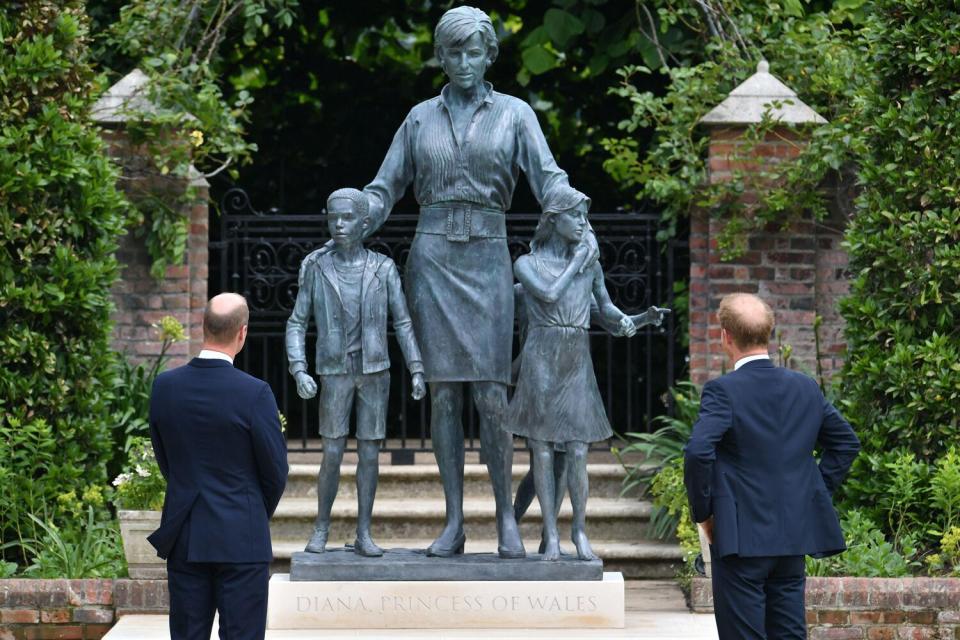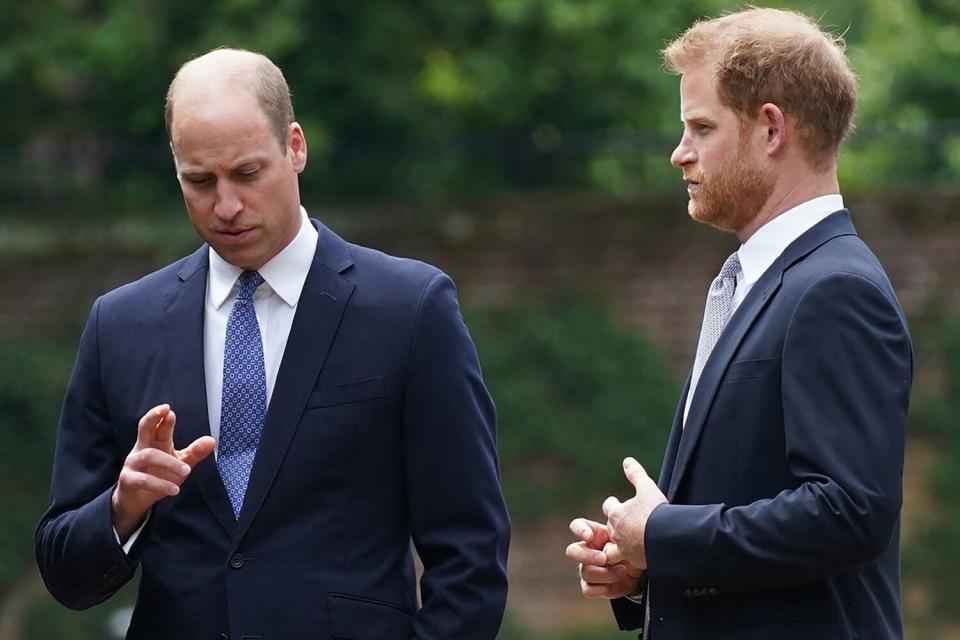Kate Beckinsale Relates to Prince Harry and William's Childhood Grief: Losing a Parent Young Is 'Quite Weird'

- Oops!Something went wrong.Please try again later.
- Oops!Something went wrong.Please try again later.
- Oops!Something went wrong.Please try again later.
- Oops!Something went wrong.Please try again later.
- Oops!Something went wrong.Please try again later.
Getty (2)
Kate Beckinsale understands the "sharp focus" that trauma can bring to the life of a child.
The Underworld star lost her father, actor Richard Beckinsale, when she was just 5 years, so when she saw Prince William and Prince Harry grieve the loss of their mother years later Princess Diana, she instinctively related to their pain.
Beckinsale, 47, told Dax Shepard on his Armchair Expert podcast, "I remember when their mother died, I was in New York, and seeing them in the context of other people sort of grieving for somebody they didn't know … I thought, 'Oh my God, I really know what that feels like.'"
William was 15 years old, and Harry was just 12, when Diana died at age 36 as the result of a car crash in Paris after a high-speed chase with the paparazzi.
RELATED: I Reported on Princess Diana — Here's What the New Statue Gets Exactly Right
Beckinsale says that, no matter your age, "When there's a cataclysmic event, it puts everything into a real sharp focus."
As the daughter of a celebrated British actor, Beckinsale also empathizes with the princes experiencing the "quite weird" feeling of strangers grieving for a family member, saying, "It was hard at the very, very beginning because it did feel like you were having this very personal, horrible crisis — and so was everybody else, but you didn't know them."

Alamy Stock Photo Prince William and Prince Harry unveil a statue of their mother, Princess Diana, at Kensington Gardens.
She said, "People would talk about how terrible they felt that they had lost him, but then say, 'Oh, but you probably don't remember anything, do you, because you were a child.' That would really upset me as a child. I found that really difficult."
She continued, "But then the person you're sharing it with is saying, 'You have less right to this than I do,' which is really odd. I found that, as I'm older, I'm less offended by it. There is something incredibly special and comforting about how much other people loved him, that, sort of the longer it goes on, [it's] lovely."

YUI MOK/POOL/AFP via Getty Images
Can't get enough of PEOPLE's Royals coverage? Sign up for our free Royals newsletter to get the latest updates on Kate Middleton, Meghan Markle and more!
Prince Harry, now 36, has been particularly open about how the death of his mother impacted his mental health.
In his Apple TV+ docuseries The Me You Can't See, the Duke of Sussex, revealed that growing up royal, "We get followed. Photographed, chased, harassed. The clicking of cameras and the flashes of the cameras makes my blood boil. It makes me angry and takes me back to what happened to my mom and what I experienced as a kid."
As he aged, "Every single time I jump in the car and every single time I see a camera. I would just start sweating. I would feel as though my body temperature was two or three degrees warmer than everybody else in the room."
RELATED: Why Prince Harry 'Volunteered' to Do On-Camera Therapy for The Me You Can't See Docuseries
One of the ways he has confronted and processed the trauma, he said, is by speaking openly about it — an approach that has often run counter to the British monarchy's working philosophy of "never complain, never explain."
"Family members have said just play the game and your life will be easier," shared Harry. "But I have a hell of a lot of my mum in me. I feel as though I am outside of the system but I'm still stuck there. The only way to free yourself and break out is to tell the truth."

